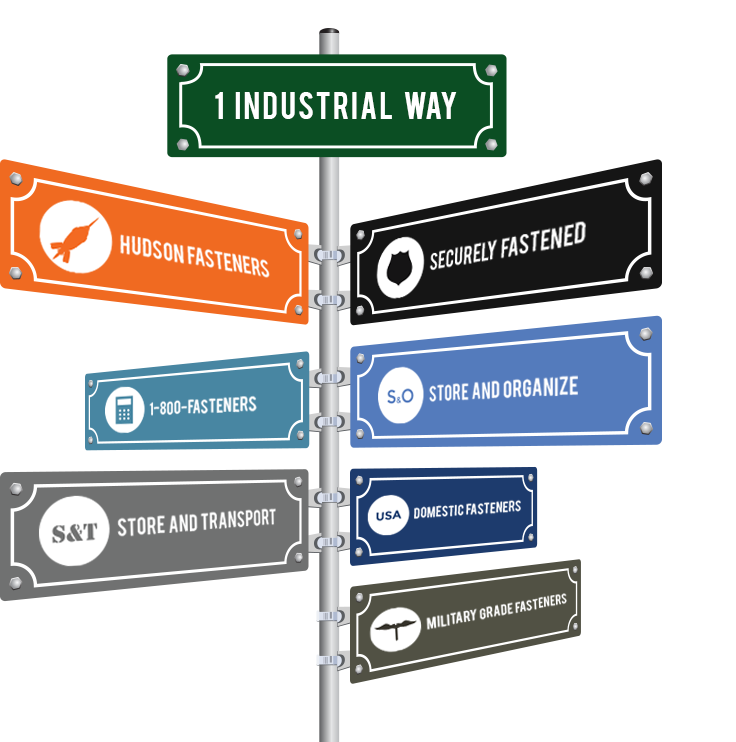 Loading... Please wait...
Loading... Please wait...-
Call Us (877) 427-2739
- Our Story
- Contact Us
- Fastener News Desk
- Nut and BLOG
- My Account
- Items / $0.00
All prices are in All prices are in USD
Categories
- Home
- Nut and BLOG
- 3D Printing
Nut and BLOG - 3D Printing
Build a Makerspace Workbench For Under $100
Posted by MakerSpaces.com on 24th Apr 2017
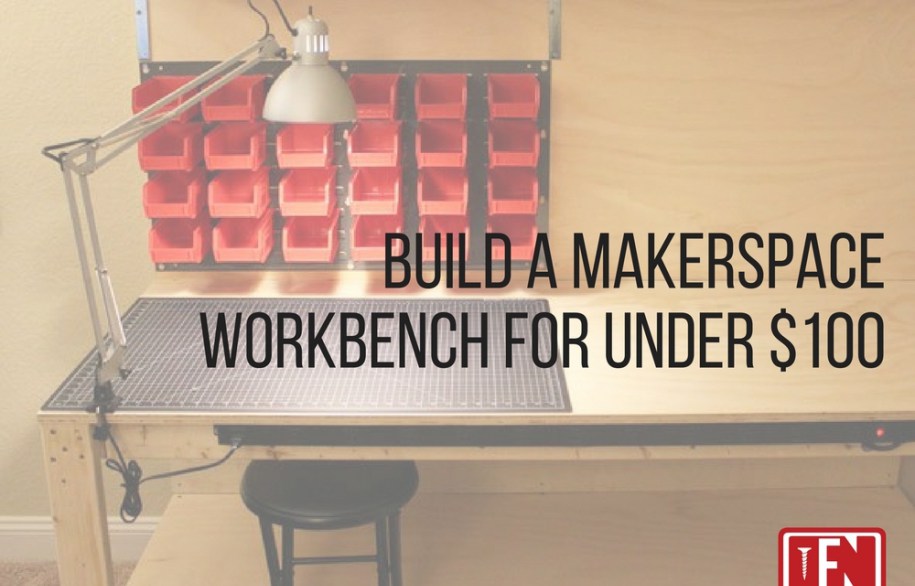
Get the complete step-by-step workbench plans in PDF format
Makerspace Workbench
We’re always creating something at our Makerspaces.com office and just recently we ran out of work space. Instead of just going out and buying a workbench, we decided to build one and share the plans so you can build one too.
Making your own workbench offers a few advantages over buying one from the store. First, you will be able to customize the bench to your specific needs, requirements and space constraints. You can make it as long, high, wide, flashy or simple as you want. And the best part is you will save a ton of money, learn something new and have the gratification of doing it yourself.
Ok, let’s make a makerspace workbench !
Build The Base
To start, we need to construct the skeleton of the workbench which will form the base structure. In this tutorial, we will provide the exact measurements needed to replicate the workbench that we built but feel free to alter the dimensions to meet your needs.
One alteration you might want to consider is adjusting the working height with respect to who will be using it. Elementary school students would need a shorter bench vs high school or adults. Also, do you prefer to stand or sit? Our workbench was designed for sitting and has a finished working height of 31.5″ which is perfect for our work stool which is 24″ tall. The fact that we were able to customize this to our needs highlights why we love building vs buying.

Base Structure of the Makerspace Workbench

Cut Sizes Needed:
All pieces below are standard 2×4 whitewood. When making alterations, note that 2×4’s don’t measure 2 inch by 4 inch anymore and are actually 1.5 inch x 3.5 inch.
- 3 pieces – 61.5″ each
- 4 pieces – 69″ each
- 4 pieces – 28.5″ each
- 4 pieces – 25.5″ each
- 4 pieces – 15″ each
- 2 pieces – 31″ each
You should be able to get these cuts out of (11) 2×4’s for a total of $34.

Build the top frame and bottom shelf as outlined and connect the 2×4 pieces using 3 inch #10 construction screws.
Next, attach the legs (31″ front and 61.5″ back) to the top frame with 3 inch #10 construction screws.
Last step for the base is attaching the bottom shelf. Screw the shelf to the legs about 5″ up from the bottom.
Make sure to use a level and a carpenter’s square so everything is square and level. The goal is to place a marble on the finished bench without it rolling.

Add The Plywood
Now that the 2×4’s are connected, it’s time to add the plywood to the top frame and bottom shelf.
You will need (1) sheet of 3/4″ sanded plywood (or similar). For the top frame, cut the plywood to 72″W x 30″D. For the bottom shelf, cut the plywood to 72″W x 18″D. Screw the plywood to the 2×4’s using 2 inch #10 construction screws.
One sheet of plywood is about $32

After the horizontal pieces of plywood are secured, go ahead and attach the back panels to the frame.
You will need (1) sheet of 1/2″ or 3/4″ sanded plywood. For the top section, you will need a piece that measures 72″ W x 30″H. Screw it in place using 2″ screws.
The bottom back piece needs to measure 72″ W x 18″ H. Screw it in place using 2″ screws as well.
One sheet of plywood for the backer panels is about $32

Congrats ! You now have a fully built makerspace workbench for about $98.
Get the complete step-by-step workbench plans in PDF format
The following sections will cover optional items that you can add to your workbench as we did in our case.
Add A Shelf
One of the reasons we added a back panel to the workbench was in order to hang a shelf. The shelf is pretty straight forward and consists of a 1″x 8″x 72″ piece of plywood mounted using (3) 8″ x 8″ brackets. When it comes to placement, it’s really personal preference on where to mount it. We have ours located at 10″ down from the top of the back panel.

Add Electrical Outlets
You can never have enough power ! That’s why we added a 48″ metal power strip ($24 from Harbor Freight) that has 12 electrical outlets and a surge protector built in. We used a 1″ spade wood bit to open a hole for the plug to go thru. The power strip plug then went out the back of the workbench to the wall outlet.

The power strip can be located at the front rail as shown or on the back panel.

Add A Protective Finish
After you finish building your makerspace workbench, you should think about protecting it. Adding a sealant to your work surface will help protect the wood from scrapes, scratches and spills. Having a protective topcoat will also make it easier to clean the surface after a project is over.
Add Storage Bins
Keeping makerspace materials organized is one of the biggest concerns we hear about. One way to help with storage is to use these plastic bins from ULINE that hang from a wall or bench mounted rack.

Image Source – ULINE
These bin racks come in a few sizes and can range from 18″w x 19″ h to 36″w x 19″h. These racks hold about 24 bins which is great for storing nuts, bolts, craft supplies and countless other materials.

Add A Task Light
Another item worth adding to your workbench is some sort of task lighting. We got this adjustable light at IKEA for about $15 and it works great at directing the light where you need it.

Image Source – IKEA
Fully Loaded !

Get the complete step-by-step workbench plans in PDF format
Source: https://www.fastenernewsdesk.com/15908/build-maker...
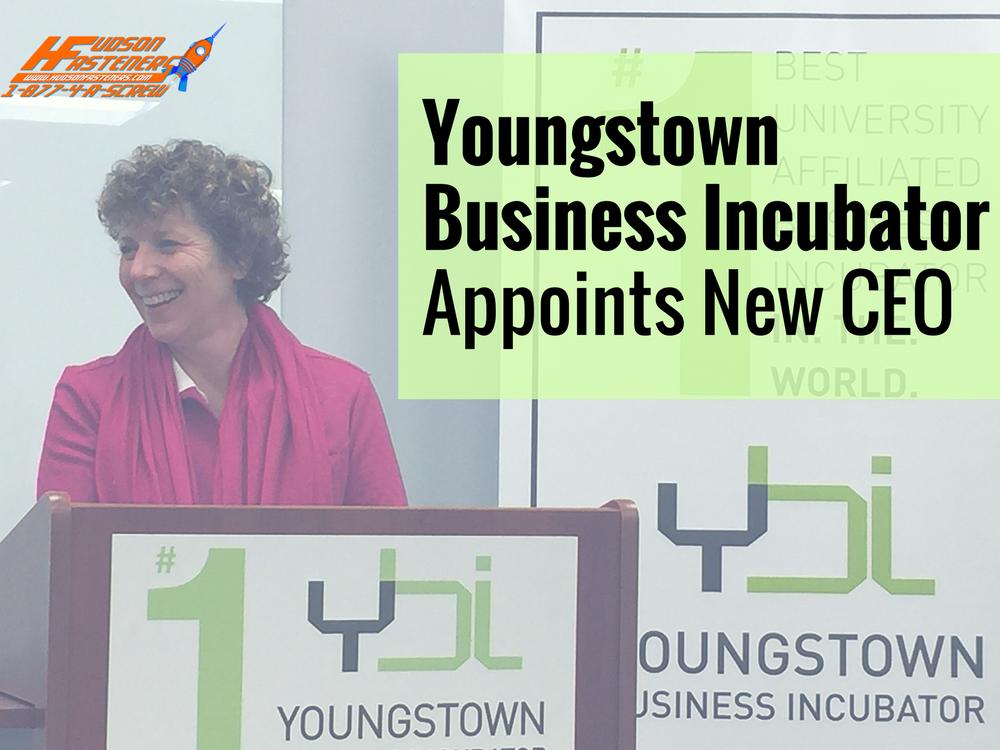
Youngstown Business Incubator Appoints New CEO
Today the Youngstown Business Incubator held a press conference to officially announce Barb Ewing as the new Chief Executive Officer (CEO) of the Youngstown Business Incubator (YBI). The process has been 12 months in the works.Barb Ewing joined the YBI as its Chief Operations Officer in 2011 after 8 years as the Economic Development Director to Congressman Tim Ryan. Prior [...]

What Is Ohio? From grilled cheese to Craigslist, Ohioans are changing the way we interact with the world.
The skyline of Cincinnati from across the Ohio River in Kentucky. [Photo courtesy of REDI Cincinnati]Google the route through Ohio from Cincinnati to Wooster to Columbus to Findlay to Toledo, and you’ll find that it takes about 50 turns, 460 miles and some nine hours of driving.I know, because I made [...]

YSU STEM Graduate Student Encourages Kids to Explore 3D Printing
Recently, President Barack Obama announced that The Smart Manufacturing Innovation Institute in Los Angeles would be the ninth manufacturing hub awarded by the Obama Administration. Among the other hubs is the very first in the country, America Makes, the National Additive Manufacturing Innovation Institute, which we are lucky enough to have here in downtown Youngstown. America Makes is “the [...]
Make Youngstown 2016 | The Movers, Shakers and Makers in Youngstown, Ohio
In earlier times in history, printing something meant that it was flat on a paper, but today the idea of printing goes way beyond that. Printing now includes 3D printing, which involves either adding or subtracting materials to create an object, shape or the like. The technology is being utilized in many industries such as manufacturing, aerospace, fashion, [...]
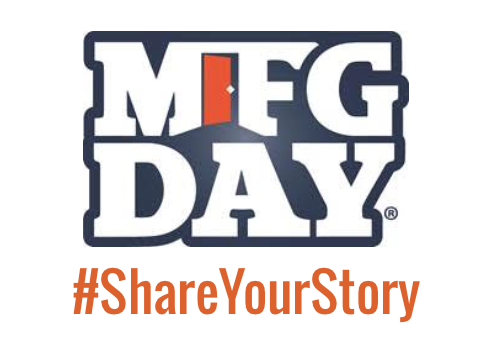
THE CITY OF YOUNGSTOWN, OHIO CELEBRATES MANUFACTURING DAY, OCTOBER 2ND, 2015
Hudson Fasteners, Inc., The Mahoning Valley Manufacturers Coalition and America Makes teamed together to bring Youngstown’s Manufacturing Day 2015 to fruition on Friday, October 2, 2015. With an emphasis on educating both students and professionals on manufacturing today and in the future, participants and hosts took part in tours of the America Makes facility located on the [...]
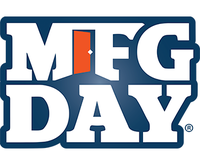
AMERICA MAKES TO HOST MFG DAY 2015 EVENT WITH YBI, HUDSON FASTENERS INC., AND THE MAHONING VALLEY MANUFACTURERS COALITION
Youngstown Mayor McNally and Congressman Ryan to Be in AttendanceYoungstown, Ohio — October 1, 2015. America Makes, the National Additive Manufacturing Innovation Institute, in partnership with the Youngstown Business Incubator (YBI); Hudson Fasteners, Inc., a YBI portfolio company; and the Mahoning Valley Manufacturers Coalition (MVMC), are pleased to commemorate National Manufacturing (MFG) Day 2015.MFG Day [...]

Hudson Fasteners in Cooperation with the Mahoning Valley Manufacturers Coalition and America Makes will host a series of Manufacturing Day Events on October 2nd, 2015
Manufacturing Day Programs are Designed to Expand Knowledge of Manufacturing, Additive Manufacturing, Rapid Prototyping, and to Improve the Public Perception of Manufacturing and Career OpportunitiesYoungstown, Ohio — September 25, 2015In celebration of Manufacturing Day 2015, Hudson Fasteners, Inc., a Youngstown Business Incubator portfolio company, the Mahoning Valley Manufacturers Coalition and America Makes, the National Additive Manufacturing Innovation Institute, will host a day of events to [...]








